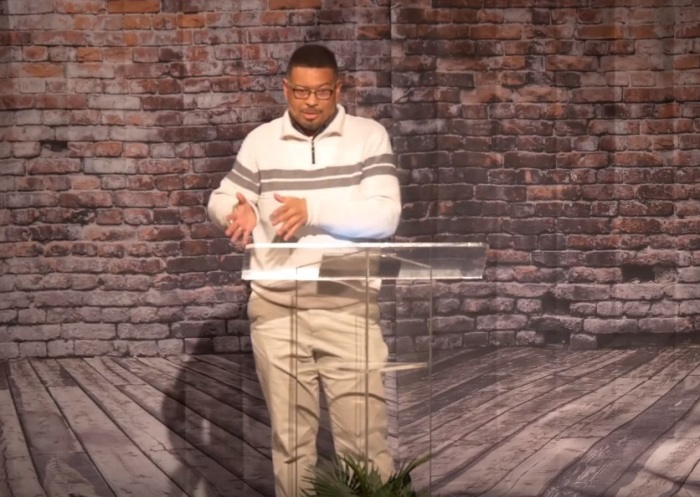Theology professor offers 3 ways Christians' religious beliefs should influence their politics

A theology professor says there are three ways in which Christians' religious beliefs should influence how they engage in politics.
Vincent Bacote, director of the Center for Applied Christian Ethics at Wheaton College in Illinois, was one of the speakers at the Just Gospel 2020 conference at Del Ray Baptist Church in Alexandria, Virginia, last week.
The first thing one must do, according to Bacote, is recognize that “a Christian is a citizen of God’s Kingdom,” which means “Jesus is their King.”
“Now, if Jesus is their King,” he explained, “that means that they have their ultimate allegiance to Jesus as their King, which makes all other obligations relative. All other commitments relative.”
“If I have ‘non-negotiable political commitments,’ am I willing to have those ‘non-negotiable political commitments’ questioned by this King to whom I have an ultimate allegiance? Can He ask me, ‘hey can we revisit that?’”
Bacote challenged those gathered by stating that “if Jesus is your King,” then “let Him interrogate us all the time,” including on political stances.
The second concept is the Christian process of sanctification and recognizing that no Christian sees the world “with perfect clarity” as they grow in faith, which means they “can miss things.”
Bacote sought to apply this sanctification process to political engagement, saying that “when it comes to your politics, you recognize ‘you know, I might be missing something.’ Which means then that whatever you’re doing with their political commitments you need to have a posture of humility, because you have not arrived,” Bacote continued.
“If a Christian is in a process of becoming holy, holy in position but in a process of living up to what that position is, then we ought to be people of humility when it comes to how we are articulating and pursuing our political commitments.”
The third concept he shared is the Christian belief in the resurrection, which shows that Christians have “the greatest hope of all” and thus should not act as “a peddler of fear.”
Bacote spoke against Christians who openly act like “we’re going to lose it all” if “political fortunes” do not go their way, something that the professor labeled as “Easter amnesia.”
“Did you just go to church? Did you just hear that God conquered death? Because if you believe He conquered death, why are you acting like, ‘but He can’t deal with this?’” he asked.
Bacote also focused on how he believes many Christians form their political views, arguing that most do so because of secular concerns that were made immediate to them through others.
As an example, he noted that African Americans tend to vote for Democratic candidates even though they are usually more socially conservative than the overall party.
“If you don’t understand why a lot of African Americans don’t think a lot about the abortion issue, it’s because they’re thinking about just trying to survive the lives that they have,” Bacote said.
“You know the people that at least have given lip service to those life concerns, it’s been more the people in the blue than the people in the red.”
The Just Gospel conference was held March 5-7 and focused on how Christians in the United States should approach politics.
“We hope to model how Christians who differ in secondary and political matters can nevertheless do so charitably and in a way that preserves both unity and freedom of conscience,” according to the conference website.
“We need and want healing conversations that serve the Church. We need pilgrim politics that bear witness to Christ and Kingdom to which we are headed.”
Other speakers included: Jenny Yang, vice president of advocacy and policy at World Relief; Darryl Williamson, senior pastor of Living Faith Bible Fellowship in Tampa, Florida; Russell Moore, president of the Southern Baptist Convention’s Ethics & Religious Liberty Commission; and Justin Giboney, an attorney who serves as president of the AND Campaign.
During his remarks, Giboney spoke about how he believed that too many Christians involved in politics have “become converts to lesser gods and lesser institutions.”
“We have evangelicals using terms like ‘patriotism’ to silence pleas for injustice. Even worse, we have some folks using the Gospel as a reason not to do justice,” said Giboney.
“Then we have some Christians who rightly concern themselves with justice, but aren’t bold enough to speak on the necessity of obedience and personal transformation along with liberation.”
Giboney added that he believed “many Christians have placed their trust in methods and ideologies that are built on a foundation that’s certain to collapse.”
“We’ve placed our faith in the tenets of conservatism or the forecast of progressivism,” he continued. “We’ve outsourced our public witness to secular commentators and think-tanks that now do the thinking for us.”




























